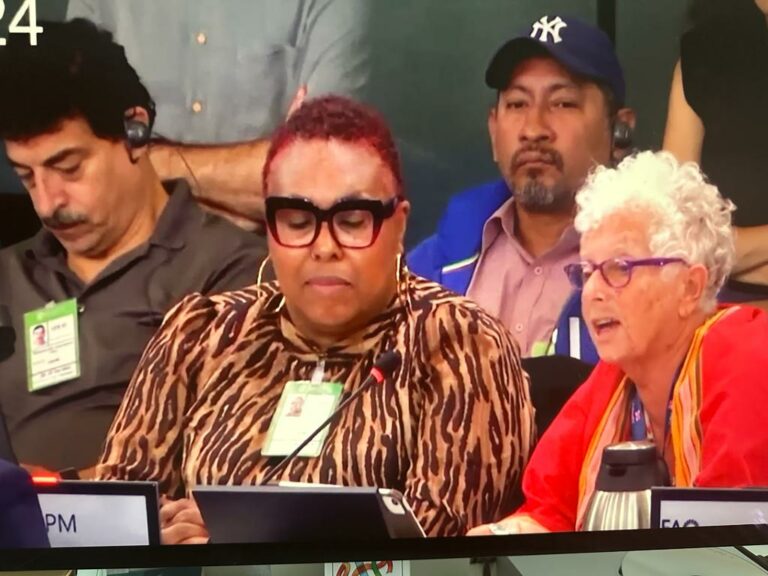Statement delivered by Judith Hitchman (URGENCI) and Dee Woods (Landworkers’ Alliance) on behalf of the Equity Working Group of the CSIPM, during the session on “Addressing Multiple Dimensions of Inequalities: Reducing Inequalities for Food Security and Nutrition” of the CFS Plenary.
Thank you chair.
The CSIPM thanks the HLPE for this aspiring report
Reducing structural inequalities within and outside of food systems is fundamental in the struggles for the people represented in our constituencies and regions to progressively realize the right to food. It is currently even more important with multiple crises fostering ever-greater inequalities globally, including in some of the countries with the richest economies.
We sincerely welcome the general direction of the HLPE report
- It’s recognition of growing inequalities in and among countries,
- That inequalities exist on many different levels throughout and beyond food systems.
- The recognition and analysis of the different histories of the marginalization and colonization of certain countries, regions, and populations, and
- The intersectional lens on inequalities.
- The principles for raising people’s agency through recognition and representation of marginalized groups.
The report very prominently addresses power imbalances as underlying drivers for inequalities that trigger acute and chronic hunger and lead to food and nutrition insecurity
- unequal power dynamics between large food corporations and food producers and market concentration.
- unfair trading systems, the financialization of food and
- the unequal distribution of resources such as land, seeds and water as well as compounding factors such as age, gender, indigeneity, race, ethnicity, and caste.
With this, we would like to draw attention to some initial priorities of the CSIPM for ambitious policy recommendations which will be concretised in the coming weeks after further consultation .
- The understanding of redistribution must be sharpened which includes a clear focus on access to and control of resources, and challenging free market ideology by implementing regulatory policies
- A focus on the most affected by hunger and malnutrition must include the groups of people affected by chronic hunger as well as people experiencing acute and extreme acute food insecurity particularly in fragile settings which is increasing globally.
- Vulnerable groups, in particular older people and persons with disabilities must be recognised in proposals
- Racial equity policy proposals must emerge from the analysis on racialisation and colonization
- A human rights based framework must be ensured to realize rights to food, water, land, housing, social protection, health, freedom of speech, decent work and workers rights, as all human rights are indivisible.
- Without an economic paradigm change, these inequalities can not be structurally overcome. The important work that has been done by the UN Inter-agency Task Force on Social and Solidarity Economy, the 2022 Conclusions of the ILO Conference on Decent Work and Social and Solidarity Economy, the ground-breaking UN General Assembly Resolution “Promoting the social and solidarity economy for sustainable development” (A/RES/77/281) on April 18th 2023. FOr those that might not be aware, the Social and Solidarity economy places people and planet before profits and also collectivises outcomes for the community. This framework is human rights-based and reaches beyond just food to cover an equitable community approach to land, seeds, water and electricity management. Furthermore the FAO 10
- Elements of Agroecology includes Solidarity and circular economy. Approximately 34 States already have framework legislation on Social and Solidarity Economy. ILO also considers it an important means of achieving Decent Work.
We therefore urge States to use this framework in addition to building on foundational CFS policy products, other legislation, processes and projects. We ask you to be courageous in centering equity in doing this and aim to move beyond individual self improvement to truly transform the power dynamics and structures to overcome inequalities to achieve social, economic and political equality for all.

